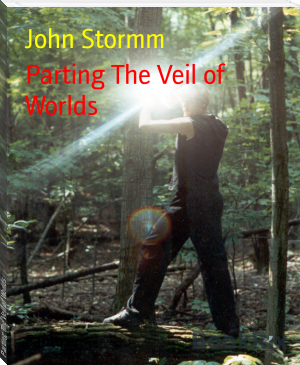The Well at the World's End: A Tale, William Morris [rainbow fish read aloud TXT] 📗

- Author: William Morris
Book online «The Well at the World's End: A Tale, William Morris [rainbow fish read aloud TXT] 📗». Author William Morris
"Well," said Blaise, "if thou hast no great errand elsewhere, thou mightest ride with us, brother. I have had good hap in these days, though scarce kingly or knightly, for I have been buying and selling: what matter? few know Upmeads and its kings to wite me with fouling a fair name. Richard, go fetch a horse hither for Lord Ralph's riding, and we will tarry no longer." So Richard trotted on, and while they abode him, Ralph asked after his brethren, and Blaise told him that he had seen or heard naught of them. Then Ralph asked of whither away, and Blaise told him to Whitwall, where was much recourse of merchants from many lands, and a noble market.
Back then cometh Richard leading a good horse while Ralph was pondering his matter, and thinking that at such a town he might well hear tidings concerning the Well at the World's End.
Now Ralph mounts, and they all ride away together. On the way, partly for brotherhood's sake, partly that he might not be questioned overmuch himself, Ralph asked Blaise to tell him more of his farings; and Blaise said, that when he had left Upmeads he had ridden with Richard up and down and round about, till he came to a rich town which had just been taken in war, and that the Companions who had conquered it were looking for chapmen to cheapen their booty, and that he was the first or nearly the first to come who had will and money to buy, and the Companions, who were eager to depart, had sold him thieves' penny-worths, so that his share of the Upmeads' treasure had gone far; and thence he had gone to another good town where he had the best of markets for his newly cheapened wares, and had brought more there, such as he deemed handy to sell, and so had gone on from town to town, and had ever thriven, and had got much wealth: and so at last having heard tell of Whitwall as better for chaffer than all he had yet seen, he and other chapmen had armed them, and waged men-at-arms to defend them, and so tried the adventure of the wildwoods, and come safe through.
Then at last came the question to Ralph concerning his adventures, and he enforced himself to speak, and told all as truly as he might, without telling of the Lady and her woeful ending.
Thus they gave and took in talk, and Ralph did what he might to seem like other folk, that he might nurse his grief in his own heart as far asunder from other men as might be.
So they rode on till it was even, and came to Whitwall before the shutting of the gates and rode into the street, and found it a fair and great town, well defensible, with high and new walls, and men-at-arms good store to garnish them.
Ralph rode with his brother to the hostel of the chapmen, and there they were well lodged.
CHAPTER 13 Richard Talketh With Ralph Concerning the Well at the World's End.
Concerning Swevenham
On the morrow Blaise went to his chaffer and to visit the men of the Port at the Guildhall: he bade Ralph come with him, but he would not, but abode in the hall of the hostel and sat pondering sadly while men came and went; but he heard no word spoken of the Well at the World's End. In like wise passed the next day and the next, save that Richard was among those who came into the hall, and he talked long with Ralph at whiles; that is to say that he spake, and Ralph made semblance of listening.
Now as is aforesaid Richard was old and wise, and he loved Ralph much, more belike than Lord Blaise his proper master, whereas he had no mind for chaffer, or aught pertaining to it: so he took heed of Ralph and saw that he was sad and weary-hearted; so on the sixth day of their abiding at Whitwall, in the morning when all the chapmen were gone about their business, and he and Ralph were left alone in the Hall, he spake to Ralph and said: "This is no prison, lord." "Even so," quoth Ralph. "Nay, if thou doubtest it," said Richard, "let us go to the door and try if they have turned the key and shot the bolt on us." Ralph smiled faintly and stood up, and said: "I will go with thee if thou willest it, but sooth to say I shall be but a dull fellow of thine to-day." Said Richard: "Wouldst thou have been better yesterday, lord, or the day before?" "Nay," said Ralph. "Wilt thou be better to-morrow?" said Richard. Ralph shook his head. Said Richard: "Yea, but thou wilt be, or thou mayst call me a fool else." "Thou art kind, Richard," said Ralph; "and I will come with thee, and do what thou biddest me; but I must needs tell thee that my heart is sick." "Yea," quoth Richard, "and thou needest not tell me so much, dear youngling; he who runs might read that in thee. But come forth."
So into the street they went, and Richard brought Ralph into the market-place, and showed him where was Blaise's booth (for he was thriving greatly) but Ralph would not go anigh it lest his brother should entangle him in talk; and they went into the Guildhall which was both great and fair, and the smell of the new-shaven oak (for the roof was not yet painted) brought back to Ralph's mind the days of his childhood when he was hanging about the building of the water-reeve's new house at Upmeads. Then they went into the Great Church and heard a Mass at the altar of St. Nicholas, Ralph's very friend; and the said church was great to the letter, and very goodly, and somewhat new also, since the blossom-tide of Whitwall was not many years old: and the altars of its chapels were beyond any thing for fairness that Ralph had seen save at Higham on the Way.
But when they came forth from the church, Ralph looked on Richard with a face that was both blank and weary, as who should say: "What is to do now?" And forsooth so woe-begone he looked, that Richard, despite his sorrow and trouble for him, could scarce withhold his laughter. But he said: "Well, foster son (for thou art pretty much that to me), since the good town pleasureth thee little, go we further afield."
So he led him out of the market-place, and brought him to the east gate of the town which hight Petergate Bar, and forth they went and out into the meadows under the walls, and stayed him at a little bridge over one of the streams, for it was a land of many waters; there they sat down in a nook, and spake Richard to Ralph, saying:
"Lord Ralph, ill it were if the Upmeads kindred came to naught, or even to little. Now as for my own master Blaise, he hath, so please you, the makings of a noble chapman, but not of a noble knight; though he sayeth that when he is right rich he will cast aside all chaffer; naught of which he will do. As for the others, my lord Gregory is no better, or indeed worse, save that he shall not be rich ever, having no mastery over himself; while lord Hugh is like to be slain in some empty brawl, unless he come back speedily to Upmeads."
"Yea, yea," said Ralph, "what then? I came not hither to hear thee missay my mother's sons." But Richard went on: "As for thee, lord Ralph, of thee I looked for something; but now I cannot tell; for the heart in thee seemeth to be dead; and thou must look to it lest the body die also." "So be it!" said Ralph.
Said Richard: "I am old now, but I have been young, and many things have I seen and suffered, ere I came to Upmeads. Old am I, and I cannot feel certain hopes and griefs as a young man can; yet have I bought the knowledge of them dear enough, and have not forgotten. Whereby I wot well that my drearihead is concerning a woman. Is it not so?" "Yea," quoth Ralph. Said Richard: "Now shalt thou tell me thereof, and so lighten thine heart a little." "I will not tell thee," said Ralph; "or, rather, to speak more truly, I cannot." "Yea," said Richard, "and though it were now an easier thing for me to tell thee of the griefs of my life than for thee to hearken to the tale, yet I believe thee. But mayhappen thou mayst tell me of one thing that thou desirest more than another." Said Ralph: "I desire to die." And the tears started in his eyes therewith. But Richard spake, smiling on him kindly: "That way is open for thee on any day of the week. Why hast thou not taken it already?" But Ralph answered naught. Richard said: "Is it not because thou hopest to desire something; if not to-day, then to-morrow, or the next day or the next?" Still Ralph spake no word; but he wept. Quoth Richard: "Maybe I may help thee to a hope, though thou mayest think my words wild. In the land and the thorp where I was born and bred there was talk now and again of a thing to be sought, which should cure sorrow, and make life blossom in the old, and uphold life in the young." "Yea," said Ralph, looking up from his tears, "and what was that? and why hast thou never told me thereof before?" "Nay," said Richard, "and why should I tell it to the merry lad I knew in Upmeads? but now thou art a man, and hast seen the face of sorrow, it is meet that thou shouldest hear of THE WELL AT THE WORLD'S END."
Ralph sprang to his feet as he said the word, and cried out eagerly: "Old friend, and where then wert thou bred and born?" Richard laughed and said: "See, then, there is yet a deed and a day betwixt thee and death! But turn about and look straight over the meadows in a line with yonder willow-tree, and tell me what thou seest." Said Ralph: "The fair plain spreading wide, and a river running through it, and little hills beyond the water, and blue mountains beyond them, and snow yet lying on the tops of them, though the year is in young July." "Yea," quoth Richard; "and seest thou on the first of the little hills beyond the river, a great grey tower rising up and houses anigh it?" "Yea," said Ralph, "the tower I see, and the houses, for I am far-sighted; but the houses are small." "So it is," said Richard; "now yonder tower is of the Church of Swevenham, which is under the invocation of the Seven Sleepers of Ephesus; and the houses are the houses of the little town. And what has that to do with me? sayest thou: why this, that I was born and bred at Swevenham. And indeed I it was who brought my lord Blaise here to Whitwall, with tales of how good a place it was for chaffer, that I might see the little town and the great grey tower once more. Forsooth I lied not, for thy brother is happy here, whereas he is piling up the coins one upon the other. Forsooth thou shouldest go into his booth, fair lord; it is a goodly sight."
But Ralph was walking to and fro hastily, and he turned to Richard and said: "Well, well! but why dost thou not tell me more of the Well at the World's End?"
Said Richard: "I was going to tell thee somewhat which might be worth thy noting; or might not be worth it: hearken! When I dwelt at Swevenham over yonder, and was but of eighteen winters, who am now of three score and eight, three folk of our township, two young men and one young woman, set out thence to seek the said Well: and much lore they had concerning it, which they had learned of an old man, a nigh kinsman of one of them. This ancient carle I had never seen, for





Comments (0)